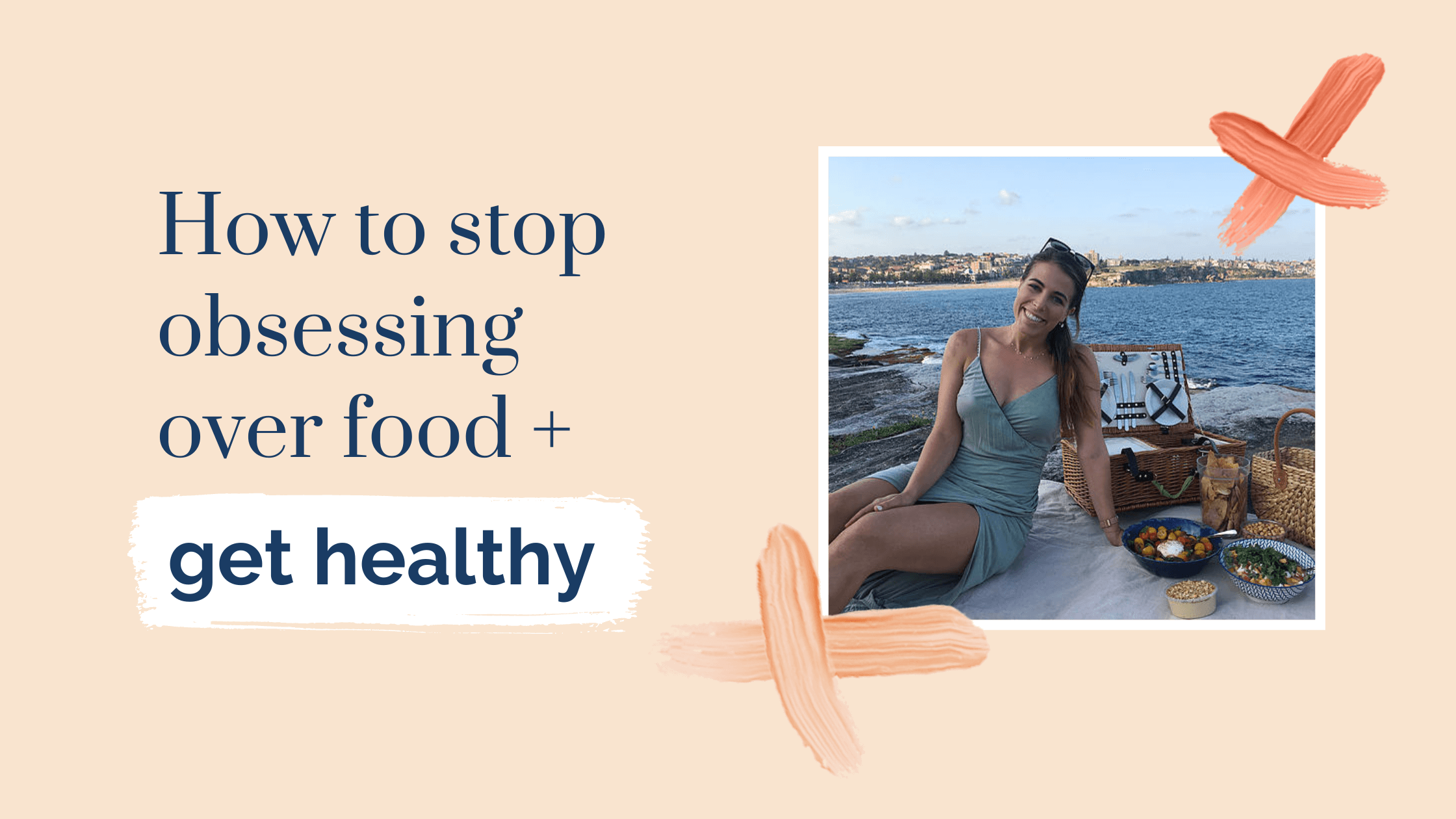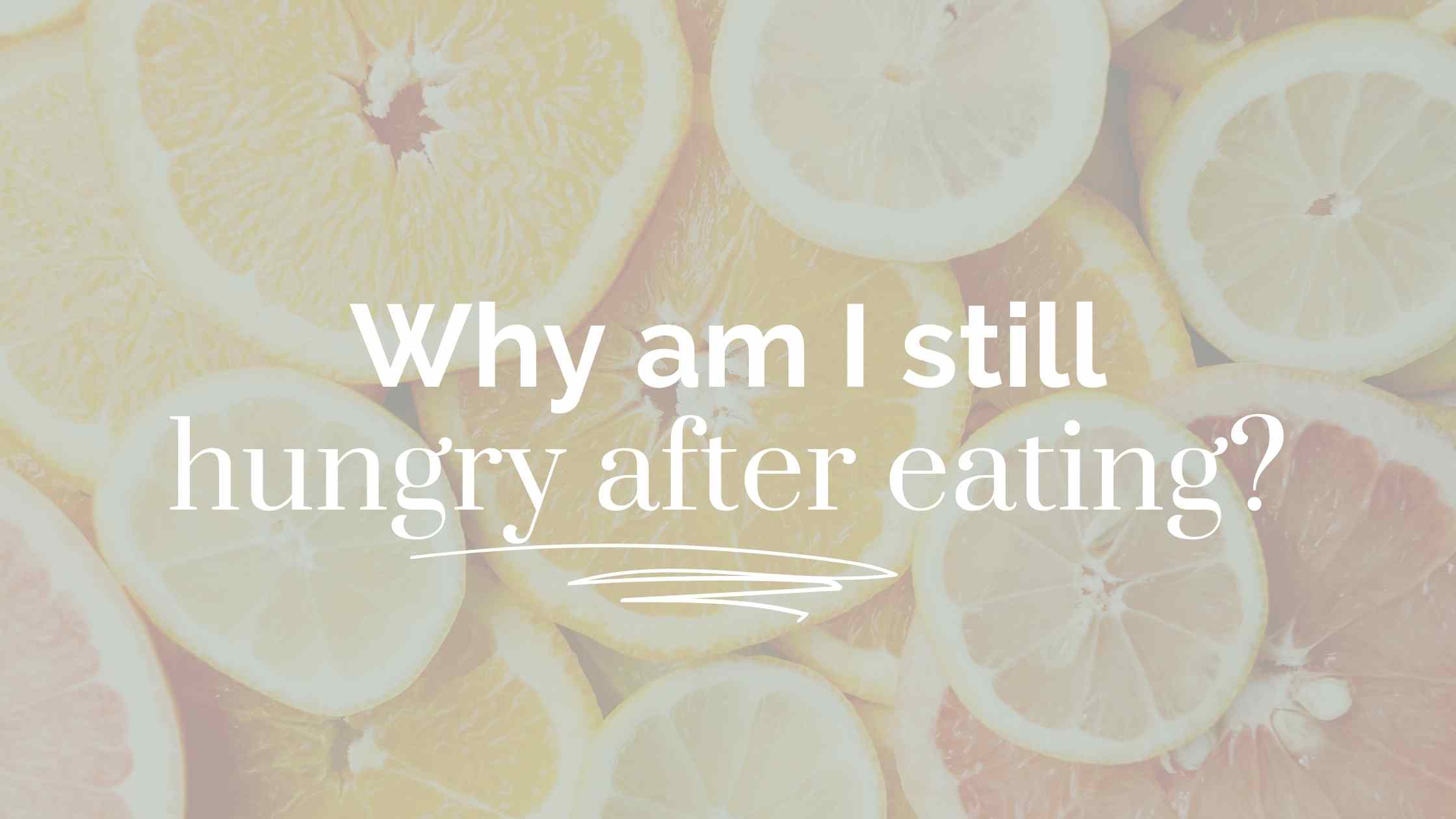How to stop obsessing over food + get healthy
Are you always worrying about what you’re allowed or not allowed to eat?
Do you ask questions like: Does this have too many carbs? Should I eat that fruit? Am I allowed that…? What has fewer calories? Is this good or bad? How many points is in that?
After years of dieting and constantly trying to lose weight, it’s common to obsess about food by asking such questions. You have been taught that these questions help you make healthier choices.
But what if, these questions are actually making it harder to lose weight and be healthy!
Ironically, when you obsess about trying to eat healthily, you end up thinking about food all the time.
Obsessing about food does NOT help you weigh less in the long term.
When you go on a diet or start a new meal plan (which is actually just a diet in disguise!), all the forbidden foods you’re not ‘allowed’ to eat will become more tempting.
Creating a list of ‘bad’ foods like peanut butter, cereal, bread, chocolate, Nutella will only make you binge or emotional eat on them later. In private. Quickly. And with a heavy sense of guilt.
Obsessing about foods also sucks the enjoyment out of food and eating.
Soon you’ll start skipping healthy fats, trying to avoid salad dressing and condiments and saying no to social occasions because it feels too hard.
Very quickly, healthy eating becomes unenjoyable and feels like a chore.
While you’re willing to be obsessed with food to achieve your weight loss goals, eating bland and boring options and saying no to your friends just to lose weight is unsustainable.
Inevitably, you’ll get sick of missing out, tell yourself ‘this little bit won’t hurt’ and then your swing right back to the other extreme. Not caring at all and feeling guilty that you’ve fallen off the bandwagon. Again.
But it wasn’t your fault!
You can only be obsessed with food for so long before your body tries to give you an ultimatum like binge or emotional eating.
So, if you want to be healthy – you need to step away from obsessing about food.
Try these powerful strategies to help you create a healthy, balanced relationship with food when you can be healthy – without obsessing.

1. Focus on adding, not subtracting
I talk about this often on my Instagram and in Keep It Real (10-week online program to stop binge and emotional eating).
Stop focusing on what you CAN’T eat. Don’t create a list of ‘forbidden’ foods as this is only going to want to make you crave them more.
The brain can only focus on one this at a time.
So start thinking about the foods you add into your diet.
This means when you get a restaurant instead of looking through the menu thinking: “Oh, I can’t have that, I can’t eat burgers, I’m not allowed fries. Argh!”
Start thinking about what you want to add to your diet to be healthier (like fruit, vegetables, seeds, legumes, nuts, quality protein) and find ways to include more of those foods.
So at the cafe, you think more like: “Salad is a great way to get more vegetables, the lentil dahl would be great because it’s got lots of fibre, maybe the sandwich on whole grain sourdough will make me feel good”.
Naturally, you’ll make healthier choices without needing your willpower. You won’t feel deprive and you’ll stop obsessing about food as much.
There is so much more you can learn to help you stop obsessing about food, reduce food guilt and stop binge eating. But start with these simple strategies.
2. Ask yourself WHY am I eating (instead of what should I be eating).
What if, instead of asking yourself ‘what’ am I allowed to eat, you started asking yourself these three question’s: WHY, HOW and WHERE?
Why am I eating?
I am hungry
Am I bored?
Am I stressed?
Am I restricting or ‘trying to be good’?
Am I eating this to make someone else happy?
How am I eating?
Am I eating very quickly, without chewing?
Am I eating mindlessly?
Am I afraid someone will come home and see what I’m eating? This used to be me.
Do I feel guilty?
Where am I eating?
Am I hiding in the pantry?
Am I eating in front of the TV
Eating on the couch?
Sitting at the table?
Surrounded by friends?
These questions – and the answers – really do matter! These questions can lead to big shifts in the way you eat food – which will ultimately impact on ‘what’ you want to eat…
Stop obsessing about what you can eat – and start asking yourself: Why, how and where am I eating?
When I stopped always focusing on ‘what’ I was eating, and started asking ‘why’ – it changed everything for me. Read more here.
Over time, I naturally wanted to healthier foods. ‘What’ I ate ended up changing over time as I naturally wanted to make a healthier choice. I’ve written about this before, but stop focusing always on ‘what’ you eat. Instead, try bringing the pleasure back to food and asking: Why, How and Where am I eating?
I have heaps more strategies I’ll love to teach you to help you stop obsessing about food whilst being healthy.
If you’re keen to learn more about reducing food guilt and want to stop binge or emotional eating, check out the Keep It Real online program designed to help you heal your relationship with food and end emotional eating.





